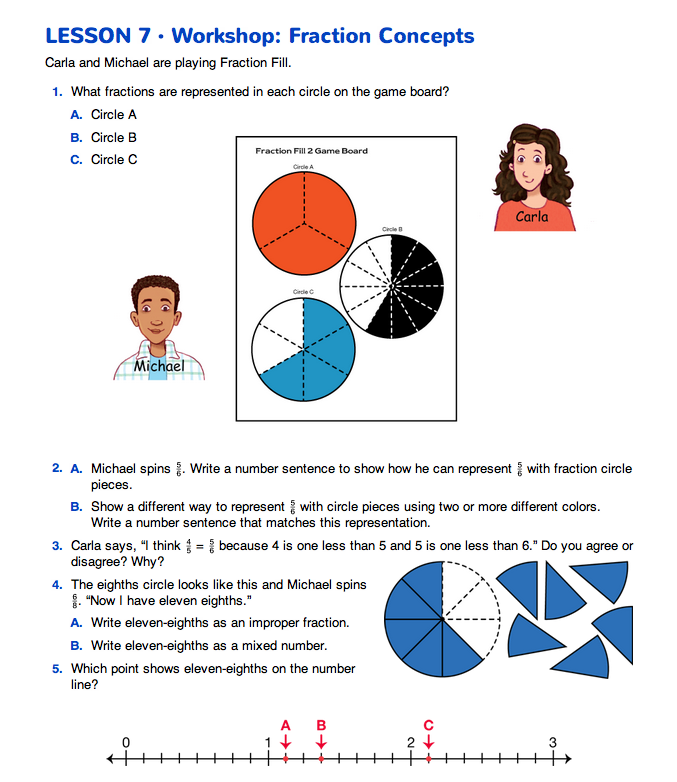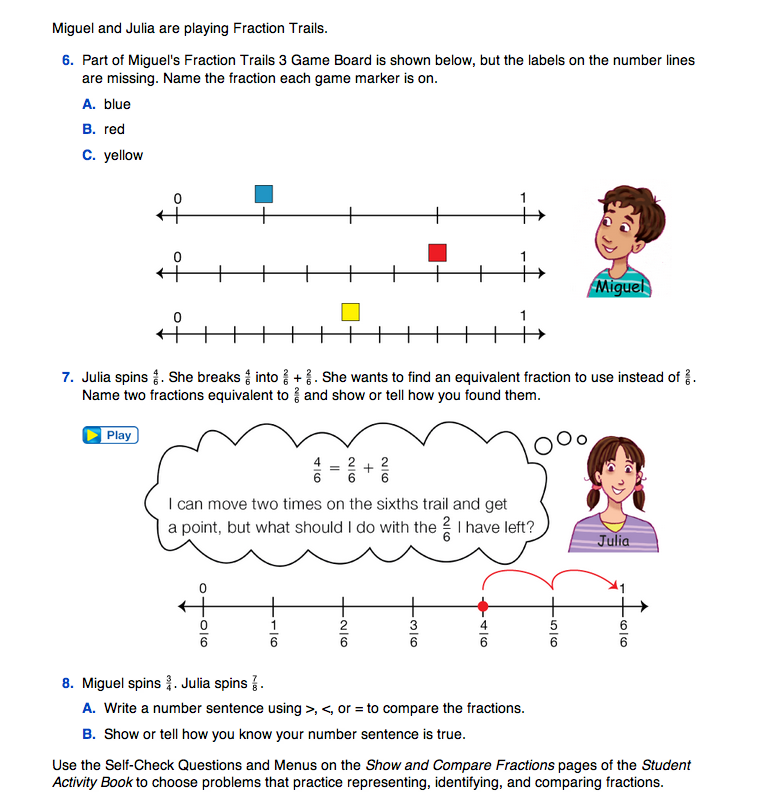Begin the lesson by directing students to the Workshop: Fraction Concepts pages in the Student Guide. The concepts explored in the unit so far are reviewed within the context of a Fraction Fill and Fraction Trails game. Assign Questions 1–8 to student pairs.
Upon completion, discuss Questions 2–3. Have a display of the Fractions on Number Lines Chart from the Student Guide Reference section and a display set of fraction circle pieces ready.
- For Question 2, how did you represent 5/6 with circle pieces using only one color? (Possible responses: 5 aquas; 10 blacks)
- Write a number sentence to match the representation. (Possible responses: 5 × 1/6 = 5/6 or 1/6 + 1/6 + 1/6 + 1/6 + 1/6 = 5/6; 10 × 1/12 = 10/12 or 5/6 or 1/12 + 1/12 + 1/12 + 1/12 + 1/12 + 1/12 + 1/12 + 1/12 + 1/12 + 1/12 = 10/12 or 5/6)
- How can you represent 5/6 using two colors or more? (Possible response: 3 aquas and 4 blacks)
- Write a number sentence to match this representation. (Possible response: 3/6 + 4/12 = 10/12 or 5/6)
- In Question 3, is 4/5 = 5/6 a true number sentence? Are 4/5 and 5/6 equivalent? (no)
- How can you show this with circle pieces? (Possible response: If the red circle is the whole, 4 green pieces do not cover the same amount of the circle as 5 aqua pieces.)
- How can you show this with number lines? (Possible response: If I take a piece of paper and compare where 4/5 and 5/6 lie on the number lines, they are not the same distance from 0 on the number line. 4/5 is closer to 0 than 5/6.)
- Find a fraction equivalent to 4/5 using circle pieces. (4 green pieces are the same as 8 purple pieces, so 4/5 = 8/10.)
- Find a fraction equivalent to 4/5 using number lines. (4/5 is the same distance from 0 as 8/10. They line up on the Fractions on Number Lines Chart.)
- Find another fraction equivalent to 4/5 using a multiplication or division strategy. (Possible response: I can multiply both the numerator and the denominator by 3. 4/5 × 3/3 = 12/15, so 4/5 is equivalent to 12/15.)
- Write a number sentence using >, <, or = to compare 4/5 to 5/6. (4/5 < 5/6)













